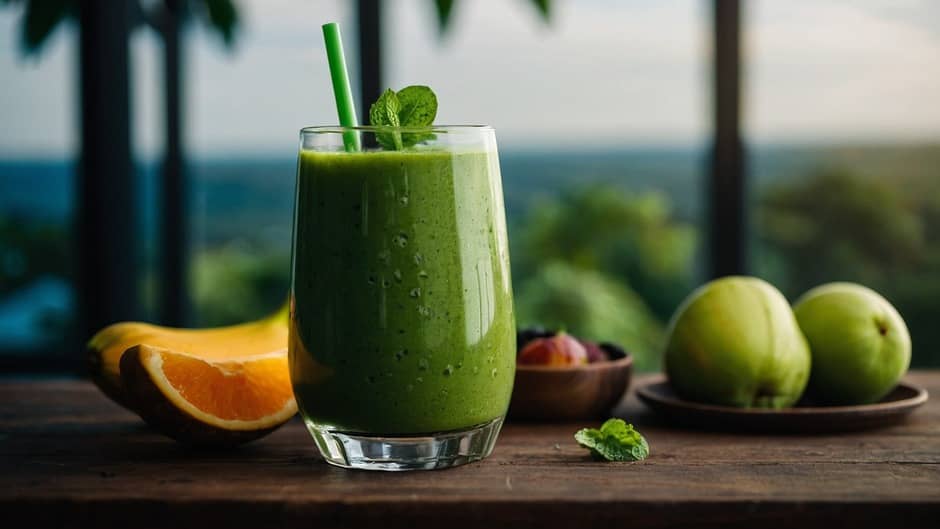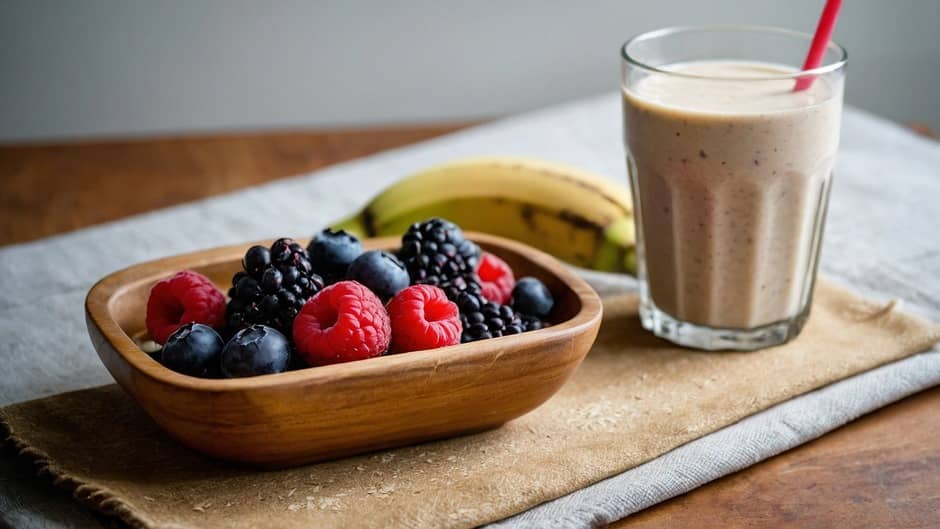Table of Contents
- 10 Nutrition Myths Experts Wish Would Die
- Myth 1: Carbs Are the Enemy
- Myth 2: All Fats Are Bad
- Myth 3: Eating After 8 PM Makes You Gain Weight
- Myth 4: Detox Diets Are Necessary to Cleanse Your Body
- Myth 5: You Need to Drink 8 Glasses of Water a Day
- Myth 6: Skipping Breakfast Is Bad for You
- Myth 7: Protein Is Only for Bodybuilders
- Myth 8: Low-Fat Foods Are Healthier
- Myth 9: Supplements Can Replace a Healthy Diet
- Myth 10: You Should Eat Small, Frequent Meals to Boost Metabolism
There is a lot of misinformation on our eating habits and food-related beliefs out there, including partial truths, false impressions, and outright myths that manage to endure despite having no basis in fact.
Not only are these misconceptions unfounded, but they can also impact our overall health, our eating habits, and our emotional state.
There are some ways for how to replace food as comfort? For instance, there is a long-standing widespread fallacy that eating fat causes weight gain.
The origin of this notion is easy to see—fat seems like something you should keep away from if you want to maintain your figure, doesn’t it? But not all fats are bad for you. Nuts, avocados, and olive oil are examples of healthy fats.
These fats support brain function as well as maintaining the integrity of our skin.
However, because of how widespread this misconception has become, many people actively avoid eating foods that are actually quite good for them because they believe that if they do, they will gain weight.
Another widespread misconception is the notion that carbs are unhealthy. While some people do well on low-carb diets, it is a myth that all carbohydrates are bad for you.
Our bodies require sugars to function, especially the cerebrum, which mostly uses glucose.
Here, it’s important to prioritize nutritious grains, fruits, and vegetables over refined grains and sugary snacks.
This fallacy leads some people to completely forgo carbohydrates, which leaves them malnourished and lethargic.
Additionally, it is a myth that detox diets are the best means of clearing your body and losing weight rapidly.
Making a fresh start and getting rid of toxins sounds good, doesn’t it?
In actuality, though, our bodies are incredibly skilled at detoxifying themselves. Our liver and kidneys work around the clock to do this. Eating less junk food and increasing fruits and veggies is fantastic, but following a complicated detox regimen isn’t necessary to keep healthy.
This fallacy sometimes leads people to follow drastic, unsustainable diets, which can cause a yo-yo effect where they gain back more weight than they lost. Not to mention the false notion that eating late at night will result in weight gain.
A common misconception is that anything you eat after a particular hour would inevitably make you gain weight. Regardless, what matters most is the quantity and quality of your food, not the time of day.
Also Read – Why Does Exercise Increase Energy Levels? – Exercises For Stamina And Speed (2024)
Your progress won’t be abruptly stopped by evening snacking if you maintain a healthy, well-balanced diet.
However, this myth might make people worry needlessly about when they eat, rather than emphasizing the importance of healthy eating habits in the big picture.
These falsehoods have the potential to negatively impact people’s eating habits or, worse, influence them to make unhealthy decisions.
When people are terrified of particular meals or think that quick fixes are the answer, eating can become a nuisance and result in harmful eating patterns.
What choices then do we have?
The first step is to keep informed and seek out evidence-based guidance from reliable sources, such as doctors or nutritionists, rather than blindly adhering to the newest trend.
It’s critical to remember that each person’s body is different, so what works for one person might not work for another.
Instead of getting sucked into illusions, it makes more sense to focus on a balanced diet that includes a variety of food sources, many soil-derived items, whole grains, lean meats, and healthy fats.
The ultimate goal should be to find a way of eating that improves your overall health and makes you feel better, rather than chasing band-aid fixes or falling for myths.
Creating long-lasting, wholesome habits is more important than searching for short cuts. Remember that enjoying your food shouldn’t be overthought.
Your mind and spirit should be nourished by food in addition to your physical body.
10 Nutrition Myths Experts Wish Would Die

Myth 1: Carbs Are the Enemy
Well, let’s start with the most important one: carbohydrates.
It’s likely that you’ve heard that cutting out carbohydrates entirely is the key to reducing weight and that they’re unhealthy. However, that is not the whole tale. In actuality, your body uses carbs as its main energy source.
Consider trying to operate a car on empty—it is impossible! Selecting the proper types of carbohydrates is the trick. Vegetables, whole grains, and natural products are abundant in fiber and nutrients that help keep you feeling satisfied and full.
Thus, focus on the quality of your carbs rather than eliminating them.
Myth 2: All Fats Are Bad
Fats have been associated with undesirable things for a long time.
Do you recall the low-fat food craze?
Everyone was trying to cut out all fat from their diets in the hopes that this would enhance their health. Truth be said, though, not all fats are made equal. Your body actually needs fat to function correctly.
Consuming healthy fats from foods like avocados, almonds, and olive oil is crucial. These fats may actually improve your temperament in addition to helping to maintain the health of your heart.
Thus, remember that healthy fats are not your enemy when it comes to your diet!
Myth 3: Eating After 8 PM Makes You Gain Weight
This is one of those myths that will never truly go away.
The notion that eating after 8 p.m. inevitably causes weight gain is based more on what you consume than on when.
Actually, the amount of food consumed overall throughout the day is more important than the duration of your mealtimes. You won’t gain weight from a late-night snack if you eat balanced, healthful meals and snacks throughout the day.
Pick something wholesome and light if you’re hungry late at night. Just watch what you put in your mouth.
Also Read – Long Term Physical Fitness Goals – What Are The Benefits Of Hiring A Personal Trainer? (2024)
Myth 4: Detox Diets Are Necessary to Cleanse Your Body
Your body already has a built-in detox system, despite the fact that detox diets may seem like a quick fix. Your liver, kidneys, and digestive tract all put in a lot of daily effort to keep you healthy and flush out pollutants.
While elaborate juice cleanses and detox teas could temporarily improve your health, they are not required and might even be detrimental.
Rather than relying on detox diets, eat a well-balanced diet of fruits, vegetables, and complete foods that naturally assist your body’s detoxification processes.
Myth 5: You Need to Drink 8 Glasses of Water a Day
Although it’s been recommended that we all drink eight glasses of water each day, each person’s daily water requirements vary.
The amount of water you require depends on your body type, degree of activity, and even the climate where you reside.
Drink when you’re thirsty and pay attention to the color of your urine—a light yellow hue suggests that you’re getting enough water—rather than measuring glasses.
Additionally, keep in mind that drinking only water isn’t the ideal approach to stay hydrated; you should also include organic foods, veggies, and other beverages in your daily intake of liquids.
Myth 6: Skipping Breakfast Is Bad for You
It’s not always the case, despite what some people think, that breakfast is the most significant meal of the day.
Some people feel better and have more energy after eating breakfast, while others don’t. It is crucial to figure out what works best for you. If you’re not hungry in the morning, it’s okay to wait till you are.
When you do eat, simply make sure it’s a nutritious meal that provides you with the energy you need to start the day.
Myth 7: Protein Is Only for Bodybuilders
Protein is now trendy in the fitness business, but bodybuilders and athletes aren’t the only ones who benefit from it.
Protein is essential for maintaining and repairing tissues, forming molecules and chemicals, and promoting overall health, thus everyone requires it.
It’s not necessary to consume massive amounts of meat or protein drinks in order to acquire enough.
Including foods high in protein in your diet, such as eggs, beans, almonds, lean meats, and other foods, is a fantastic approach to satisfy your needs.
Protein is necessary for everyone, not only those trying to gain weight.
Myth 8: Low-Fat Foods Are Healthier
Although it’s simple to think that consuming meals low in fat always makes you healthier, this isn’t always the case.
Certain low-fat food sources make up for their lack of fat by adding extra sugar, salt, or artificial ingredients.
Because of this, they can be less healthful than full-fat alternatives. Eat as much of the food choices that include some fat as possible because fat adds flavor and helps you feel full.
Just be sure the fats are good fats, such those found in nuts, seeds, and fish.
Myth 9: Supplements Can Replace a Healthy Diet
Improvements can be helpful in completing healthy gaps, but they shouldn’t be used in place of a healthy diet.
The diversity of nutrients present in whole meals, which combine to keep you healthy, is unmatched by supplements. Additionally, some improvements may be harmful if taken in excess.
Prioritize obtaining the nutrients you require from food wherever possible, and only take supplements in case of a specific medical condition or nutrient shortage.
Myth 10: You Should Eat Small, Frequent Meals to Boost Metabolism
Another widely believed illusion is the idea that eating small, frequent feasts will improve your digestion and help you lose weight.
Actually, your metabolism is more influenced by what and how much you eat than by how frequently you eat.
Some people enjoy three major meals a day, while others prefer smaller, more frequent meals.
Simply because you’ve been told something is “better” for your metabolism doesn’t mean you have to eat that way; the greatest strategy is the one that suits your body and way of life.
Read us on Medium.




